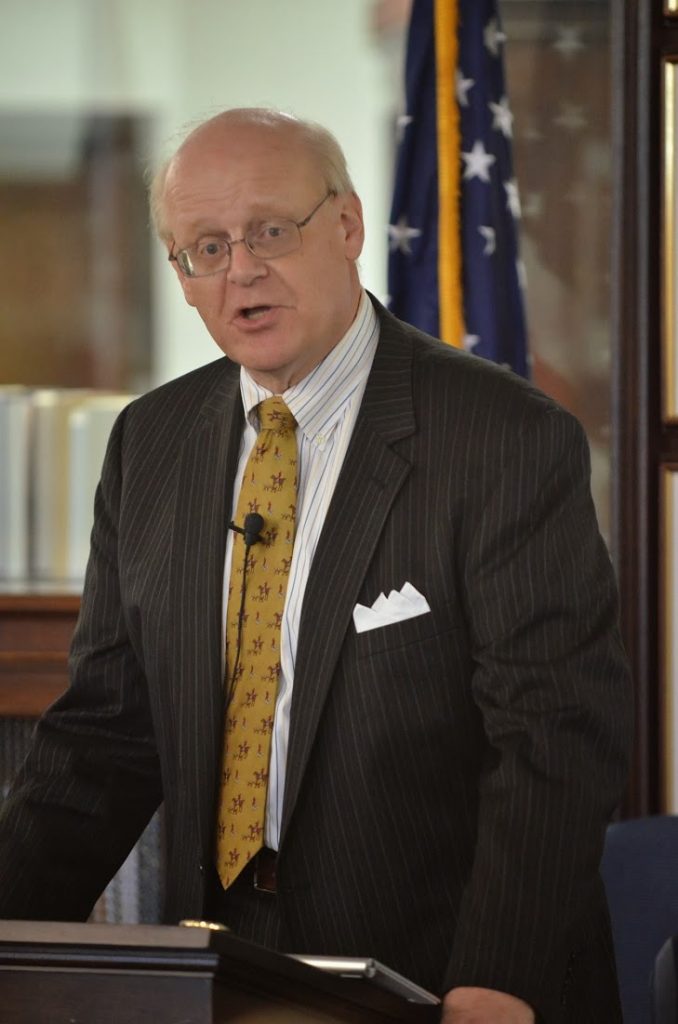Guelzo Helps Scholars Ponder the Meaning of the Civil War
December 24, 2020


Lincoln fascinates students of American history. He supervised a war that lives on in American memory as uniquely costly and painful—yet somehow particularly meaningful. Lincoln accomplished what no statesman before him was able to do: he brought to an end the American practice of slavery, while preventing the dissolution of the union over the slavery question. Yet while he freed the slaves, he did not achieve civil rights for the sizeable African American minority, and opinion is divided over how forcefully he would have pushed for this, given public statements he made about the possibility of social equality between the races prior to his assassination.
Ashbrook Scholars read large portions of Lincoln’s writings in the course of their studies, and many greatly admire him. “I always think of Lincoln as the ultimate prudent statesman,” says sophomore Scholar Steven Forbush. “When full justice is not possible, he shows how to get as close to justice as you can.”
Earlier this month, Scholars listened to a lively presentation by historian and Lincoln biographer Allen Guelzo, two-time winner of both the Lincoln prize and the Lincoln Institute Prize, who is Professor of History and Director of Civil War Era studies at Gettysburg College. Guelzo addressed the question, “Was the Civil War a second American revolution?” discussing the question from a Union perspective and as Lincoln would have answered it.
Forbush said, “Dr. Guelzo made the point that if the South had won, that would have been more revolutionary.” In starting a war to protect their right to secede and maintain the institution of slavery in a new confederacy of states, Southerners tried to found a government based on a different premise than that underlying the original American republic—they were trying to found a government based on a claim “that men are not equal.”

But Guelzo also stressed that neither side in the war saw themselves as conducting a second revolution. Joe Griffith, a senior writing his thesis on Lincoln’s rhetoric, recalled Guelzo’s response to the question: Would the Southern states themselves consider their separation from the Union as a revolution? “Dr. Guelzo said they tried everything to say it wasn’t,” because if it were, the government they were organizing would have to be rebuilt from scratch. “It would have meant renegotiating all contracts and property rights.”
Sam Mariscal, a senior Scholar from Kingsburg, California, noted that he had heard other historians hint at a “second American revolution” in describing the way Lincoln’s wartime presidency transformed our governmental processes. Some historians “say that Lincoln’s administration expanded the role of the federal government, overrode states’ rights, and set a precedent for a larger federal role.”
Guelzo differs, Mariscal says; he affirms Lincoln’s view that the arguments over “states’ rights” were distractions from the real question on which the war turned. “The Southern States argued it was their right to own human property, while Northern states argued it was their right to exclude slavery and ignore fugitive slave laws.” Each side bristled at having to accommodate the other’s feeling about slavery. But “when Lincoln spoke of rights, he talked about the rights common to all men, not states. Lincoln argued no man has a right to enslave another.”
Scholars praised Guelzo’s presentation, calling it one of the best they had heard in the Ashbrook series of colloquia. “Sometimes people who are great writers aren’t very good speakers, and vice versa. . . . Dr. Guelzo is good at both,” said Griffith. Mariscal found Guelzo so interesting that he went up after the presentation to ask additional questions. Already a fan of Guelzo’s writing, Mariscal says he owns four of Guelzo’s books, a significant endorsement from a student who works part-time to pay for his education. “I’m writing my senior thesis on the Lincoln-Douglas debates, “ Mariscal said—“on which of the two contenders measures up to the classical idea of a statesman. Dr. Guelzo gave me some good advice.”

